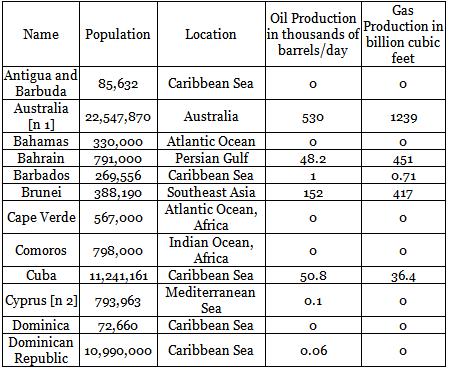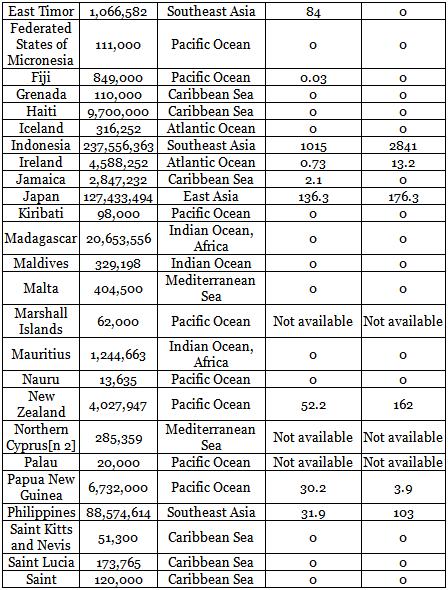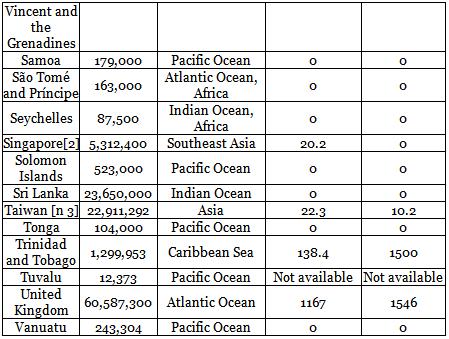My July 30th blog described Mauritius as a country concerned with climate change, as evidenced by its hosting our conference on the topic, and the creation of its own task force, “Maurice Ile Durable” (MID) to examine all aspects of government in terms of preparations for climate change, both in terms of mitigation and adaptation. The influx of large, violent storms is partially associated with climate change, especially when regarding their frequency and intensity, both of which are expected to increase. But in spite of one such catastrophic storm the country recently experienced, the general feeling appears to be that Mauritius is not in immediate danger of being swept under a rising sea in the near future.
This attitude is different from that taken by other sovereign islands. Cases in point: the Maldives, whose president, Mohammed Nasheed, has taken a leadership role in trying to wake up the world to the dangers of climate change, recently going so far as to hold a cabinet meeting underwater, and the Kiribati government, which is pursuing a “migrating with dignity” policy, by encouraging its people to adapt by moving to safer grounds in Australia. One of the main reasons for the different attitudes is the difference in topography. Most of the populations of Kiribati and the Maldives live in a flood zone, with no place to move. As the March flood showed, most of Mauritius’ population also lives in a flood zone, however the middle of the country is endowed with mountains more than 2000 ft high.
The outlook on flooding vs. moving is not the only one with disparity among island nations. Another difference in attitude became evident to us before we arrived in Mauritius, during our visit to Madagascar, where we went to see the lemurs, for which the island is so widely known. Madagascar is a very poor country, whose historically unstable government recently gained notoriety when an army-led group ousted the elected president.
The conversation with our driver quickly turned to the present political situation. I posed a question about the prospects of finding off-shore oil and gas along the very long shore line. He responded that, according to many, this was one of the main reasons for the coup d’état. Everybody wanted a piece of the profit. It is starting become clear that while the nature of islands leaves them vulnerable to flooding and other adverse impacts of climate change, it also means that they inherently have a perimeter of shoreline; something which gives them plentiful off-shore exploration rights for oil and gas. As the technologies of off-shore exploration and drilling have improved, so too have the chances of findings. I decided to compile list of the haves and have nots, using a list of sovereign islands from Wikipedia and a compilation of data for the latest oil and gas production of these island from the US Energy Information Administration.
As we can see from the table, the three islands that I have mentioned are listed as lacking any oil or gas production capabilities. However, databases on this issue are becoming obsolete very quickly. Meanwhile, although I cannot speak to any current oil or gas exploration in Kiribati or Mauritius, Madagascar is reported to sit on a potential of 17 billion barrels of oil, with 3 billion recoverable reserves.
New findings of oil and gas, in countries formerly without them, can create mixed voices in terms of mitigating climate change; ones that sound very similar to those that we hear in the rest of the world.
Stay tuned.




Flood can be occurred naturally and it can be controlled only to some limits, so it is necessary to have insured your properties. By applying and having of insurance you can claim your money if flood took place.
Humanity is seriously sickly addicted to fossil fuels. That sobering fact is implicitly underscored in this news you’re bringing from Africa.
Even the poor countries do want to join the big drug dealers (FF companies) once they discover the abundance of drug on their territories. The human greed for money overriding the reasonable scientific facts and long term duty or care is universal. Unfortunately a strong, international regulations may be needed to curb this global, classic tragedy of commons problem.
Thanks for brilliant article.
Thanks for the excellent article with the specs. What an irony that some of these countries are seeking to profit from oil extraction!
My Dad was in the Royal Airforce in the Maldives, so I have a special spot in my heart for the island. I work with people in Bangladesh who also fear for their future. This past week, I watched a really bone-chilling documentary called Climate Refugees whose trailer is on youtube at /watch?v=28MH3jZlucc.
As someone who has contacts in the security glass and hurricane protection industry, I understand just how devastating the new great storms can be. No kind of glass is going to save these folks though. Hard to imagine how all of our lives will be impacted once climate refugees are on the move.